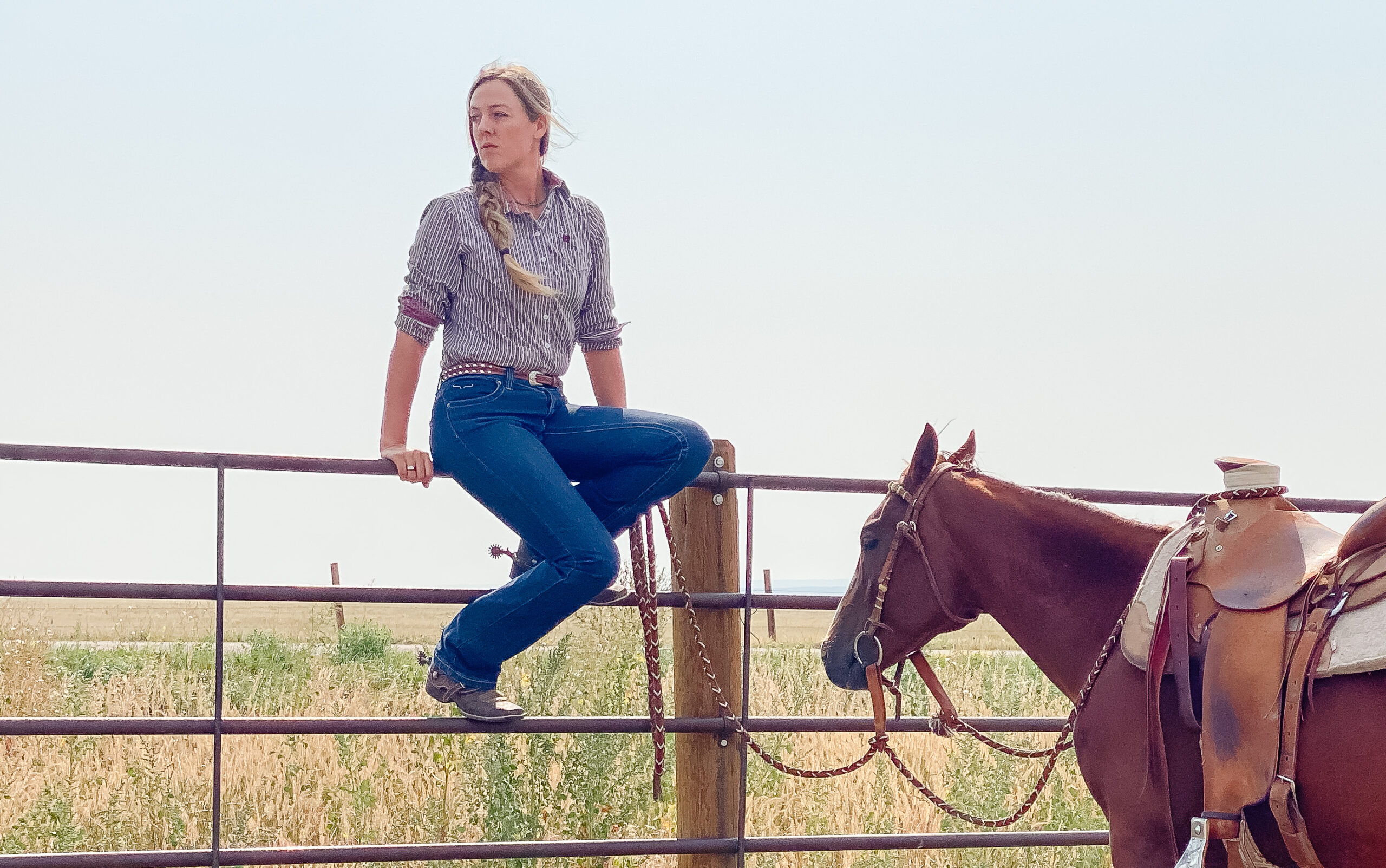
“I initially didn’t listen to your podcast because I assumed it was going to be full of conspiracy theories like all the other homesteading shows… but I’m glad I was wrong!”
I stared at the DM and my heart sunk. It wasn’t the first time I’d received a message like that.
I was torn between feeling grateful that they gave my show a chance and feeling sad.
The homesteading movement has changed so much in recent years.
A simple movement once fueled by love of food and land has seemingly transformed into a frenzied mob selling fear and paranoia 24/7.
I’m not a fan.
It’s not that I don’t believe we won’t be facing some shaky times in America in the future. We felt it during COVID and it could still be continuing for quite some time. And it’s also not that I don’t take the time to be prepared for any type of emergency (blizzard or otherwise).
I store food in my basement. I’ve previously written about how I store a year’s supply of food (and also shared a video tour of my pantry and food storage).
Christian and I are prefer a mindset that focuses on being prepared while also enjoying the homestead life and all that it does for us…but we don’t let that pendulum swing all the way over to fear and panic.
It can be a slippery slope to becoming paranoid and believing all the conspiracy theories. Living in fear is bad for your mental (and physical) health. So be prepared, think ahead, be wise…without becoming fearful and paranoid.
(Love to listen instead of read? Here’s my podcast episode on the same topic: Why I Don’t Live Like the Sky is Falling).
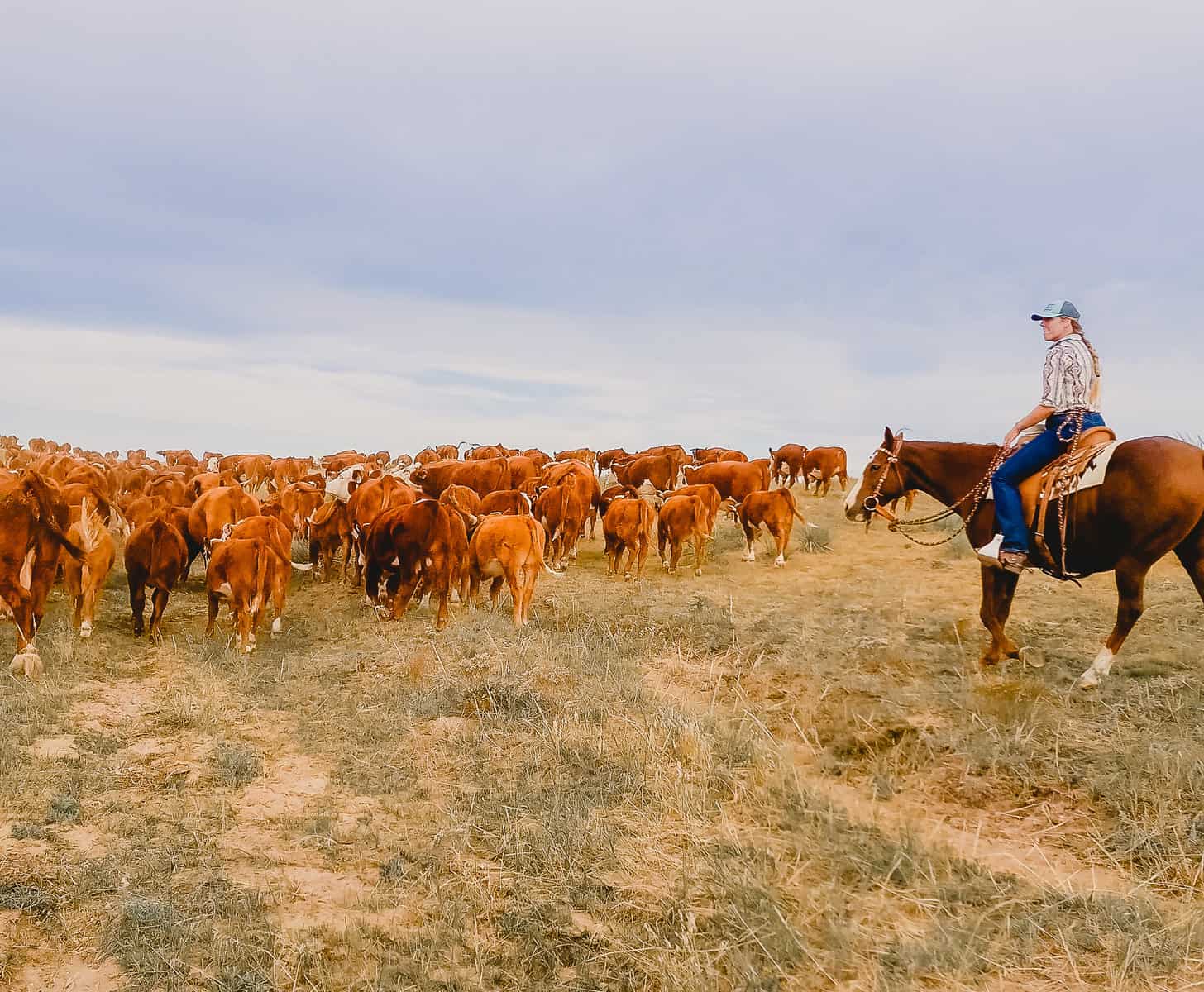
Three Concepts That Trick Our Brains
Why are people so easily moved towards paranoia and conspiracies? It’s because of how human brains work and our brains’ weaknesses. Here’s a closer look at three concepts that can trick our brains:
Confirmation Bias:
Confirmation bias is a concept that says that if you look for something, you will find it. And we often prefer to find information that is consistent with our existing beliefs. We all do that. It feels good to us.
Even I do it. For example, I recently read the book Bad Therapy by Abigail Shrier. It’s a book about parenting and the epidemic of kids not wanting to grow up and becoming stunted. I LOVED the book but one of the big reasons that I loved the book is because it validated what I already believed about child-rearing.
Whenever I feel the confirmation bias creeping in, I try to ask myself questions about my beliefs and then I try to read something that is going to challenge what I think. This doesn’t mean that I’m going to flip-flop sides but it DOES mean that I’m being open minded and not falling into a confirmation bias trap.
One of the scariest things about social media is that the algorithms are set up for confirmation bias. I do not think this is a government plot but it’s probably from corporations that just want to make more money on social media. Because once the algorithms learn what you like on social media, they are going to show you more on that topic. It can end up making you believe that the majority of people believe the same thing as you do. We need to understand that we can get skewed on our views really fast due to confirmation bias.
Occam’s Razor Principle:
Occam’s Razor Principle is the concept that says the simplest explanation that will account for a circumstance or an event is almost always the correct one. While it is admittedly more dramatic to believe in complex conspiracy-focused theories, do a whole lot of research first. Before jumping to conclusions about a topic, first try to consider the most simple reason behind it.
For example, could a chicken plant have burned down due to some diabolical plan from a villainous organization? Possibly. But is it also possible that factories are often complex buildings and that wiring just caught on fire? Yes. Let’s be open-minded enough to consider the obvious possibilities and solutions in our quest for truth on an issue.
Baader-Meinhof Phenomenon:
Baadar-Meinhof phenomenon is also known as the “Frequency Illusion”, which is a cognitive bias in which a person notices a specific concept, word, or product more frequently after recently becoming aware of it. This is something that we’re all pretty aware of (even if you didn’t know the fancy term for it).
For example, you see a yellow car and comment on it and now you see yellow cars all over the place. It’s pretty similar to confirmation bias: if you look for it, you’ll find it. For example, if you look for conspiracies or crazy connections with special ‘signs’, chances are you’ll probably find it.
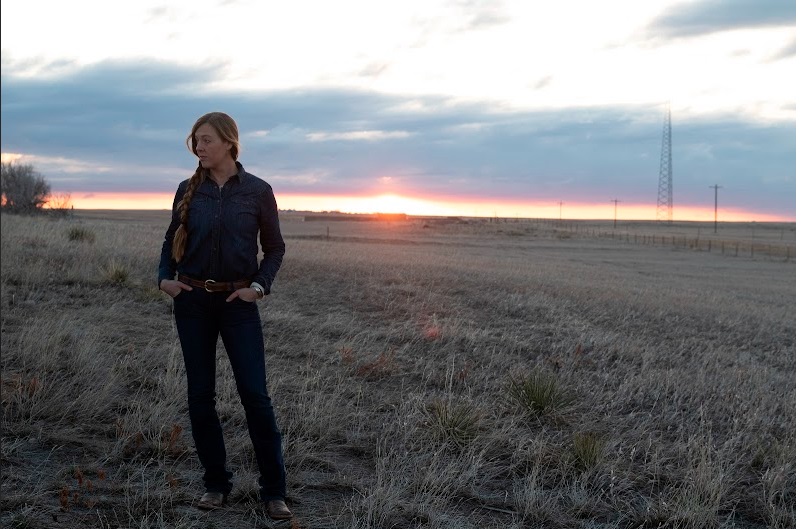
It’s important to keep these three concepts in mind and remember that our brains are going to try and play tricks on us sometimes. Just be aware of that. I hope that you are willing to ask questions and see both sides on things and research carefully and be curious instead of just stuck in the same mindset for all time.
I don’t know what the next ten years holds. And it’s okay to be prepared for declines in governments and be prepared for economic recessions and anything in between. But don’t lose sleep over it. I personally homestead out of love instead of fear. I think it’s so important to do that.
I think it makes homesteading much more enjoyable if you aren’t thinking that the sky is falling.
You can choose to live in a heightened state of fear or you can choose to love the homestead life and produce and prepare for your own enjoyment and life.
Because here’s the deal, friends:
If you’ve been here for any length of time, you know my favorite thing is opting out of conventional systems.
(aka, I’m not a “big government lover” like I’ve been recently accused of….)
If there’s a way to be an unconventional, old-fashioned weirdo, sign me up.
Christian and I are also huge proponents of being prepared for whatever life throws our way. We refuse to be sitting ducks.
But.
You can be both unconventional AND prepared, without consuming fear & paranoia 24/7.
I’m so passionate about this, I created a training on this very topic a while back.
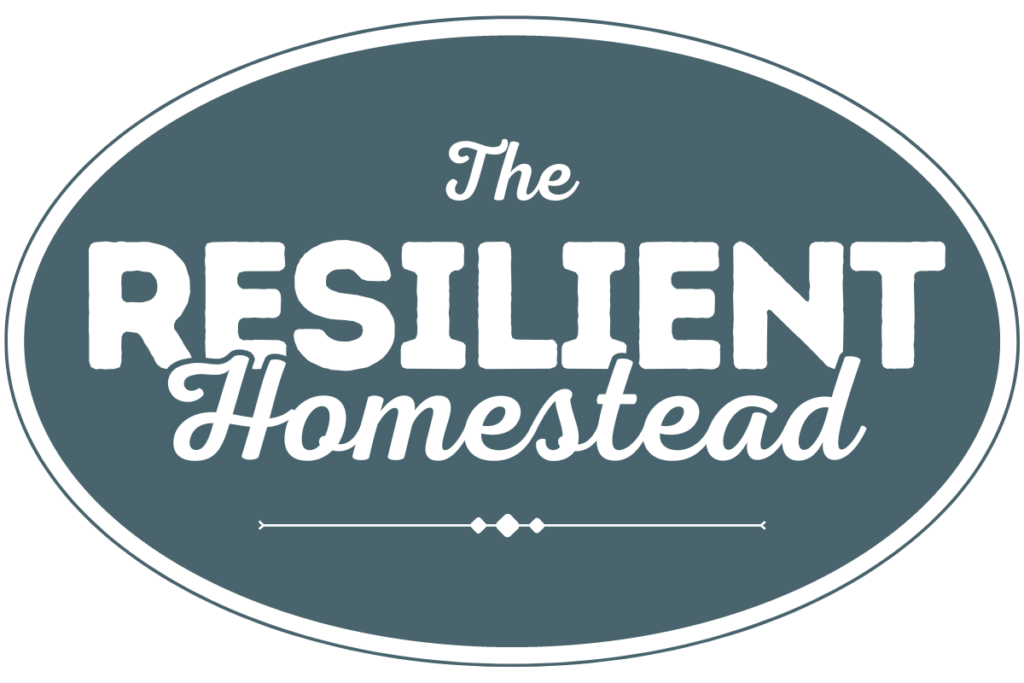
I initially called it the “Recession-Proof Homestead” because that’s what everyone was most worried about at the time.
But I’ve since realized that while the training is still very relevant to current happenings… the name isn’t.
This old-fashioned lifestyle prepares us to not only for recessions, but for all the other things life may throw our way.
So… as I added new content to the course, I gave it a new name as well:
I LOVE the word resilient. It means something that recovers from or adjusts easily to misfortune or change.
Resiliency is one of the #1 traits I work on building in my businesses, my children, myself, and especially our homestead.
We want it to be able to handle anything that the world throws our way.
Over the years, Christian and I have learned a lot as we’ve built our homestead systems through the Great Recession of 2008, various job/employment changes, and even COVID.
We’re ready to weather whatever may or may not come.
And if life continues as normal, well— even better– we’ll still be solid in our finances, food, and health.
If you previously purchased Recession-Proof Homestead, you get access to all the updates for free (just log into your member’s area and you’ll see everything there!)
If you interested in grabbing the training, here are a few of the topics that are included:
- How we’ve built a food production system that allows us to grow 60-70% of everything we eat (and how I source the rest without a grocery store)
- The steps we follow that allow us to sleep like a baby and not live in fear of “what’s coming next”
- How you can create your own island of peace in a chaotic world, even if you don’t own land
- Slash your grocery budget by as much as 5% with something that takes less than 15 minutes per day.
- How to save hundreds of dollars by buying in bulk (and which foods you should never bulk-buy)
- How to stop being dependent on the feed store and reduce your animal feed bill by at least 50%
- The vegetables you need to be growing to reduce your trips to the grocery store
- Insider tricks for growing food all winter long, even if you live in a cold climate (the more you grow, the less you buy!)
- My #1 strategies for boosting your soil health for more consistent growth and yields (all the sweat you pour into your garden won’t matter if you have bad soil.)
- My tried-and-true “peasant food” recipes that will teach you how to master the art of cooking with ingredients from the earth.
- The preservation and canning mistakes that are costing you major $$
- Which farm animals are most productive and cost-effective (and which ones will drain your bank account.)
- How we set up our finances in 2008 that enabled our bank account to thrive, regardless of what was happening with the economy
And I’ve purposely kept the cost low (a one-time payment of $67) so it’s affordable for everyone.
Click here to start creating a more resilient homestead
While the homesteading “niche” may feel little weird at the moment, I’m more determined than ever to keep bringing folks back down to earth.
And I’ll still be over here growing the food and cooking the things just like I have for the last 15 years, regardless of the chaos that does or doesn’t swirl around us.
Homesteading Out of Love, not Fear,
-Jill
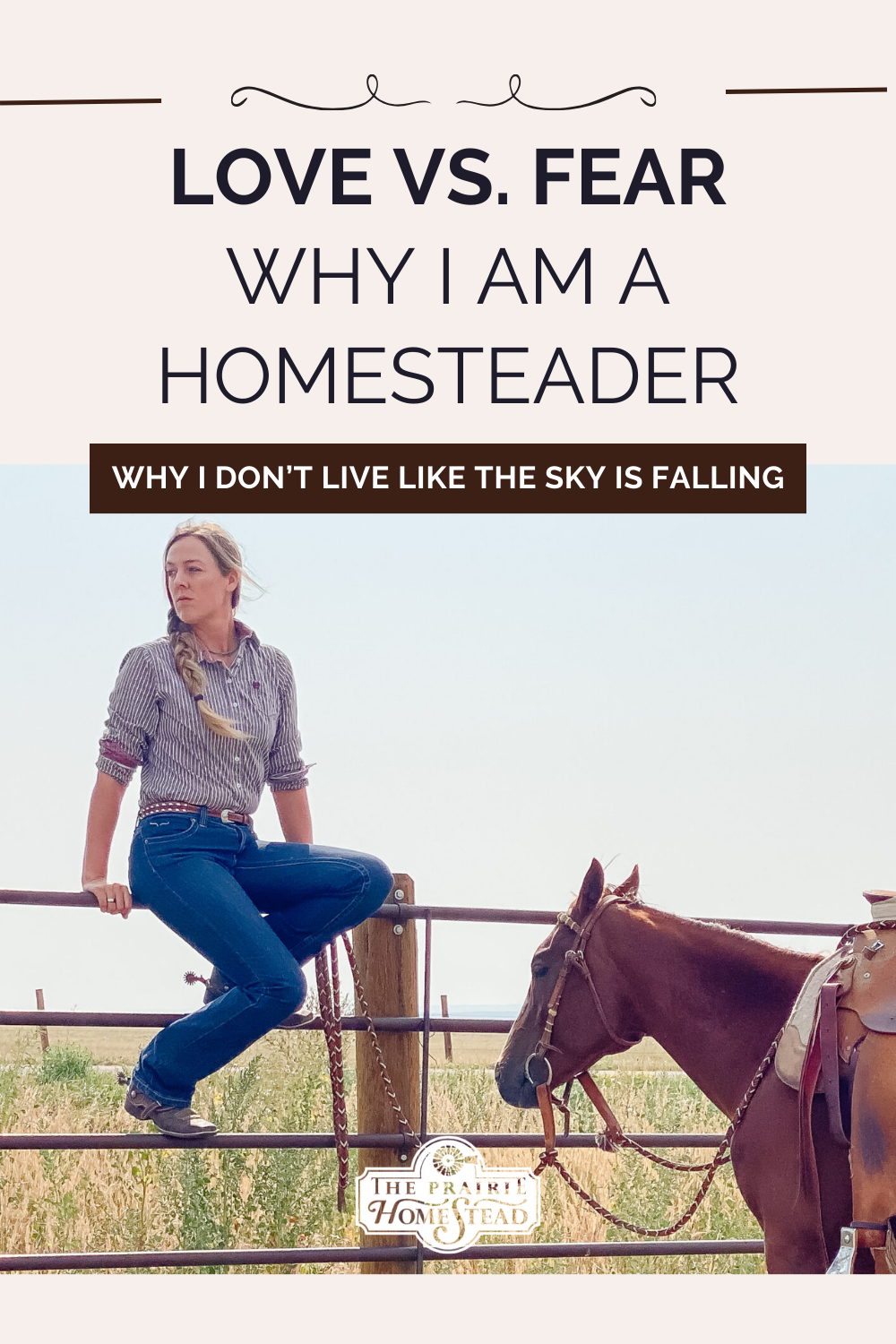
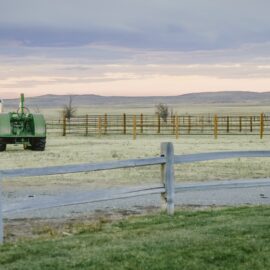
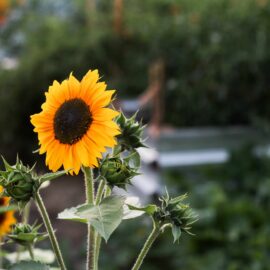
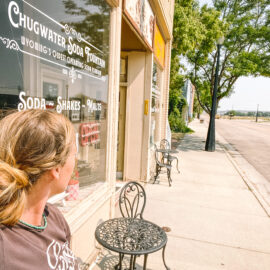
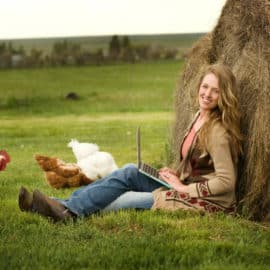
Leave a Comment